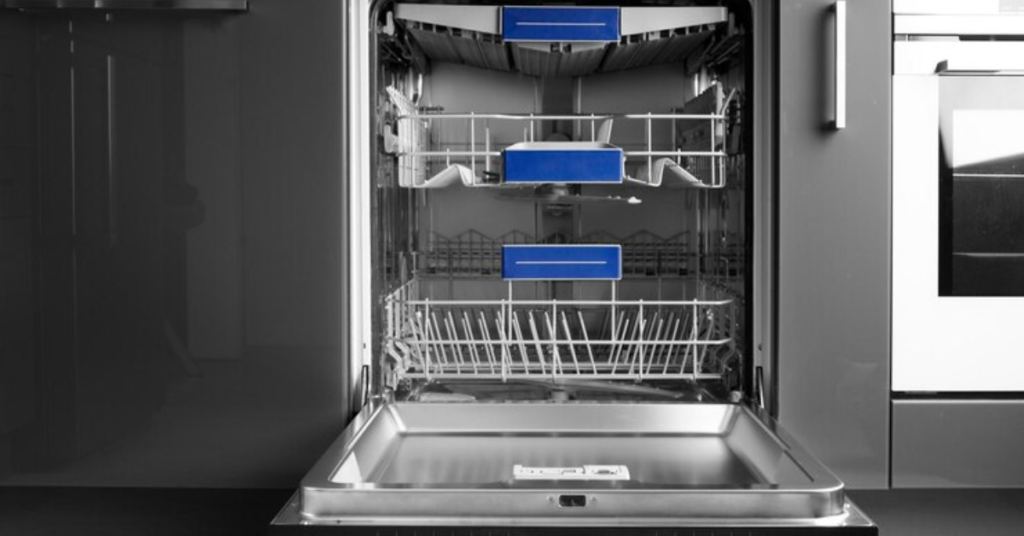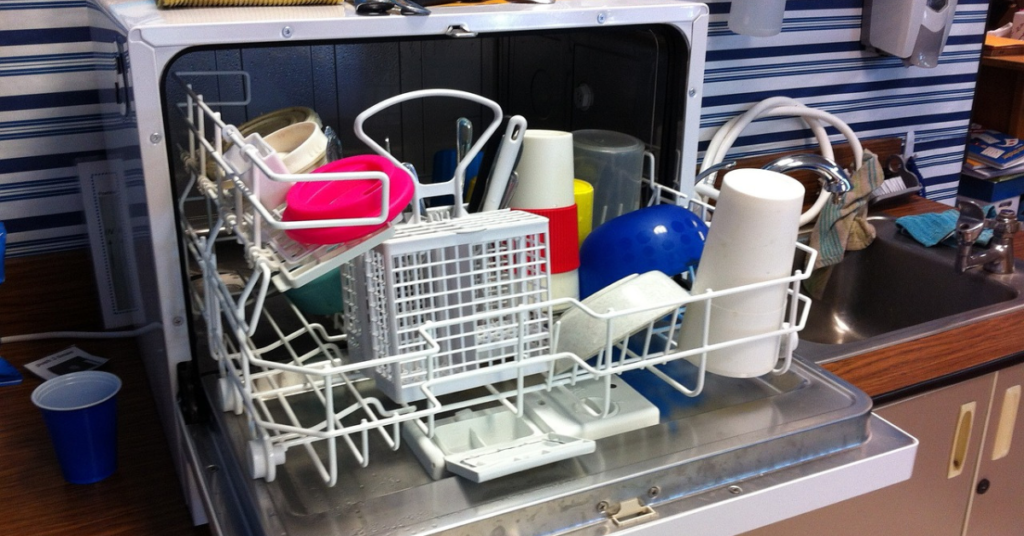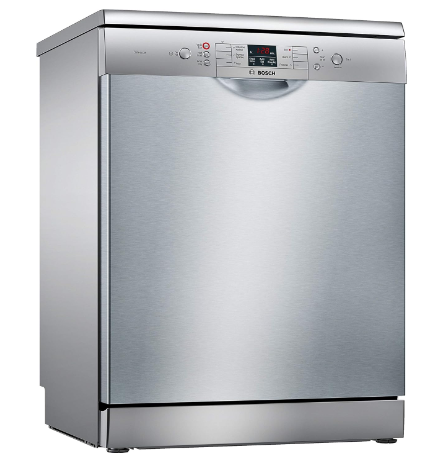Dishwashers have become a main part of modern kitchens, it offers convenience and efficiency to millions of households worldwide. You will know about the history of dishwasher, their operation, and various types of models available in the market from this article. We will also discuss the benefits and drawbacks of purchasing a dishwasher so you can make an informed choice. Whether you are a first-time buyer or looking to upgrade, learn all you need to know about dishwasher.
Bosch 13 Place Settings, Free Standing Dishwasher
Upgrade your kitchen with Bosch’s 13 Place Settings Free Standing Dishwasher! Effortlessly clean dishes with advanced technology. Say goodbye to dirty dishes, and hello to convenience. Shop now!
History of Dishwasher

The concept of mechanized dishwashing dates back to the 19th century. Before the introduction of the dishwasher, washing dishes was time-consuming and difficult to operate that required manual cleaning of each dish. The first mechanical dishwashing device was patented in 1850 by Joel Houghton. Though, it was not until the late 19th and early 20th century that dishwasher had become common.
In 1887, Josephine Cochrane from Illinois invented the first practical dishwasher. Cochrane’s dishwasher was displayed at the 1893 World’s Fair in Chicago and was primarily designed for commercial use. It is equipped with a motor wheel that sprays soapy water onto the dishes.
Dishwasher became more economical and efficient as a result of improvements in manufacturing techniques and technology over the 20th century. Dishwasher, which provide a quick and hygienic way to wash dishes, were a typical household device in many American households during the 1950s and 1960s.
How Does a Dishwasher Work?
Understanding the operation of the dishwasher will help you make a wise purchase choice. A dishwasher works by spraying hot water and detergent over the dishes to efficiently remove food particles and oil. Here is a step-by-step explanation of how a dishwasher works.
- Loading: Before starting the dishwasher, it’s essential to load it properly. Place dishes, glasses, and utensils in the designated racks, ensuring that they are not overcrowded to allow water to circulate freely.
- Pre-wash: Some modern dishwasher come with a pre-wash cycle that rinses the dishes to remove any loose food particles. This step helps in better cleaning results. Understanding an operation of the dishwasher will help you make a wise purchase choice. A dishwasher works by spraying hot water and detergent over the dishes to efficiently remove food particles and oil. Here is a step-by-step explanation of how a dishwasher works.
- Main Wash: Once the pre-wash is complete, the dishwasher moves on to the main wash cycle. During this phase, the dishwasher heats water to a high temperature and mixes it with detergent. The water is then sprayed onto the dishes under high pressure, loosening and removing food residues.
- Rinse Cycle: After the main wash, the dishwasher drains the dirty water and proceeds to the rinse cycle. Fresh water is sprayed onto the dishes to remove any remaining detergent and food particles.
- Drying: The final step in the dishwasher cycle is drying. Some dishwashers use a heating element to dry the dishes, while others rely on a fan-assisted drying method. Once the drying process is complete, the dishwasher signals that the cycle is finished, and the dishes are ready to be unloaded.
Types of Dishwasher

There are various types of dishwasher to choose, each having a unique set of features and advantages. Here are the most common types of dishwasher available in the market:
- Built-in dishwasher: Built-in dishwasher are intended to fit in with your existing kitchen cabinets. They have a sleek and integrated appearance, making them a popular choice for modern kitchens. Built-in dishwasher come in various sizes to accommodate different kitchen layouts and can be customized with panels to match your kitchen decor.
- Drawer Dishwasher: Drawer dishwasher feature separate drawers that can be operated independently or simultaneously. Because it lets you run smaller loads without wasting water or electricity, this kind of dishwasher is perfect for little kitchens or homes with limited space.
- Countertop Dishwasher: Countertop dishwasher are compact and portable units that can be placed on your kitchen counter. When there is little space, they work great in RVs, dorm rooms, and flats. Despite their small size, countertop dishwasher offer decent capacity and cleaning performance.
- Portable Dishwasher: Portable dishwasher are freestanding units that can be moved around your kitchen as needed. They are equipped with wheels and a quick-connect adapter that allows them to be hooked up to your kitchen faucet when in use. For homeowners or renters who desire the freedom to relocate their dishwasher, portable dishwasher are an excellent choice.
Pros
- Time-Saving: Dishwasher can save you valuable time by taking care of the dishwashing process automatically, allowing you to focus on other tasks or spend time with your family.
- Water and Energy Efficiency: Modern dishwasher are designed to be more water and energy-efficient compared to hand washing, helping you save on utility bills and reduce your environmental footprint.
- Superior Cleaning Performance: Dishwasher use high-pressure water jets and specialized detergents to clean and sanitize dishes more effectively than hand washing.
- Convenience: With multiple wash cycles and programmable settings, dishwasher offer unmatched convenience and customization options to suit your cleaning needs.
Cons
- Initial Cost: The upfront cost of purchasing a dishwasher and installation can be expensive, depending on the model and features you choose.
- Space Requirements: Built-in and portable dishwasher require adequate space in your kitchen, which may be a challenge for smaller kitchens or apartments.
- Maintenance: Like any other appliance, dishwasher require regular maintenance and cleaning to ensure optimal performance and longevity.
- Noise Level: Some dishwasher can be noisy during operation, which may be a concern for households where noise is an issue.
Conclusion
Dishwashers have advanced significantly since they were first invented in the 19th century; they are complex machines that provide convenience, efficiency, and greater cleaning performance. Whether you want a built-in drawer, countertop, or portable dishwasher, there is a model that meet your demands and budget. Investing in a quality dishwasher can be fruitful, you save your time and effort in the kitchen that allows you to spend more time doing the things you love.
However, it has pros and cons also that need to be informed to make a decision that aligns with your lifestyle and preferences. Choose the dishwasher that is best for you by taking the time to research and compare various models.



